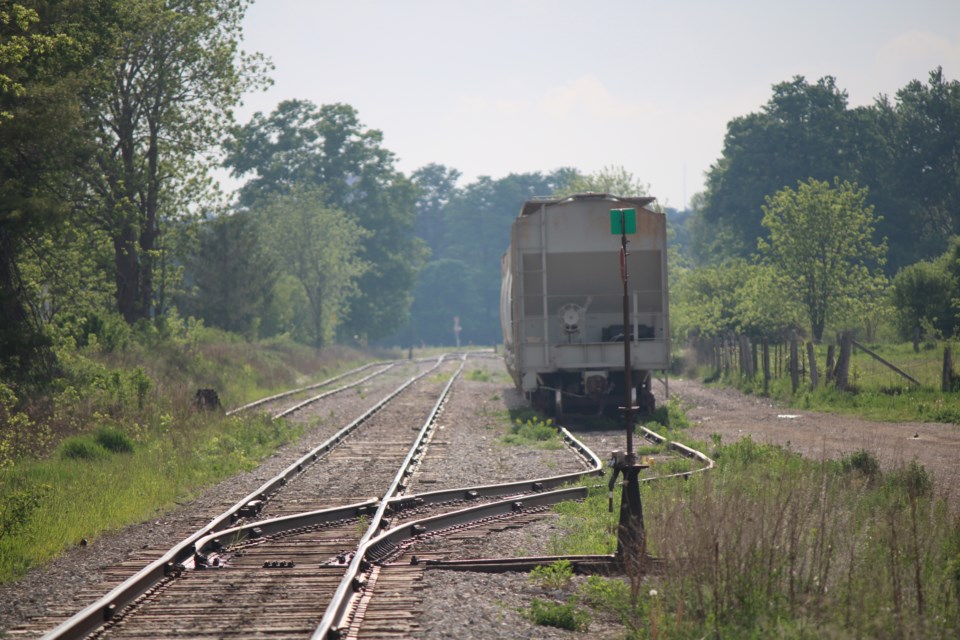Puslinch council has indicated it will not be directing staff to further pursue a whistling cessation agreement with Guelph Junction Railway (GJR).
Despite a push from a citizen’s group based in Arkell to address issues with GJR, including stopping loud whistling through the hamlet, council cited safety and liability concerns as well as staff time as reasons to not investigate an agreement further.
The train committee of the Concerned Citizens of Puslinch represents a group of 35 families who have taken issue with GJR operations in Arkell and has been advocating to the township to get its concerns addressed.
Most concerns related to the noise, particularly in regards to late hours of operations and the train’s horn blasting as it passes through the four Arkell intersections.
A letter of correspondence, discussed at Puslinch’s Wednesday council meeting from train committee member Bruce Taylor declared they want the same whistling cessation agreement as in the City of Guelph.
The letter cites that Puslinch residents are subjected to “loud horn blasts” while GJR uses a bell when crossing intersections in Guelph under normal circumstances.
“To not support the same standards and practices for safety as practised by the same railway owner, the City of Guelph and the GJR ... is to stand for a double standard,” Taylor wrote.
“A double standard makes no sense when excellent railway safety is being practised in the City of Guelph and the GJR has an excellent railway safety record.”
CAO Glenn Schwendinger said ongoing meetings and conversations with GJR have been positive to address some concerns.
He said they have reduced hours of operation so trains aren’t running as late in the night and are working on some technical adjustments to new equipment to reduce noise during loading and unloading.
In regards to a whistling cessation agreement, Schwendinger said they’ve gone as far as they can go without bringing in the County of Wellington and outside consultants to further analyze the crossings and what would be needed to bring this agreement in place.
However, in what he knew about other municipalities that have passed similar bylaws, some have had accidents and fatalities associated with trains.
“The municipality who passed that bylaw was named in legal action,” Schwendinger said.
Coun. Jessica Goyda, who lives in Arkell, said the train horn had saved her from being hit by a train previously and was therefore not interested in a cessation agreement.
“It’s been implied that there’s a double standard ... I am struggling with that because I don’t think we’re really comparing apples to apples,” Goyda said. “We’re talking about an urban community and our rural community and they aren’t the same.”
Coun. Matthew Bulmer also shared this view as he had heard from the agricultural community that the train’s horns are important for the safety of those crossing train tracks with large farm vehicles.
Mayor James Seeley said negotiations with GJR have already taken up a considerable amount of staff time which would be better used on the other issues.
“I’m confident in our CAO in his negotiations with GJR to maybe come up with some better hours of operations and to continue working towards some mitigation of the noise from the unloading,” Seeley said.
